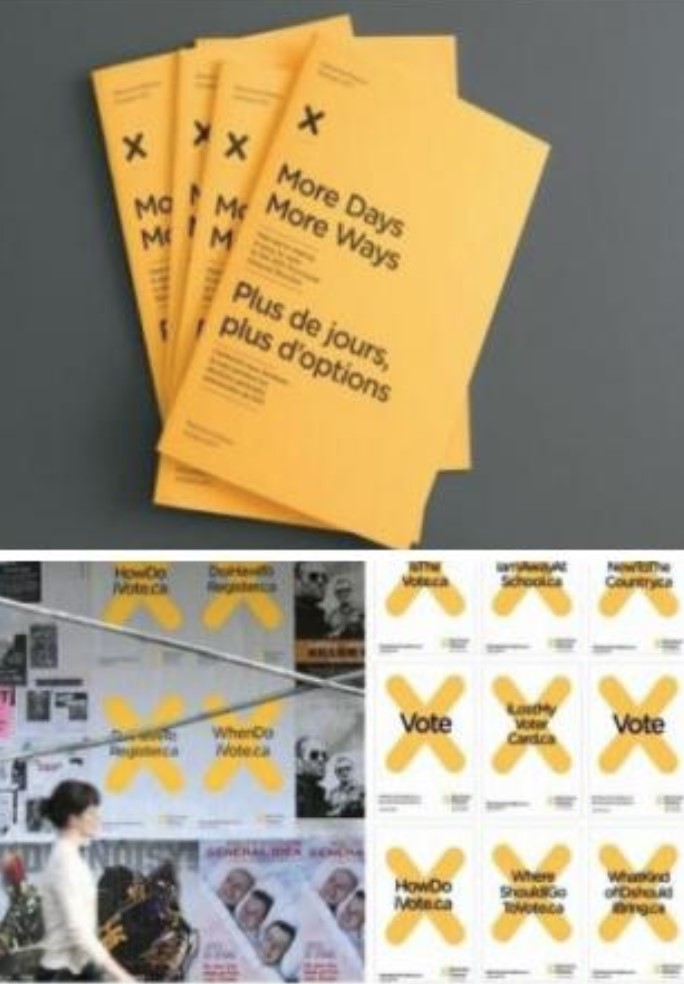The Urbanite – Jon Liedtke – June 4, 2014
So you think you can vote?
With a looming provincial election scheduled for June 12, the time has come again for empowered citizens to promptly ignore their civic duty.
In 2011, a dismal 49.2 per cent of eligible Ontarians cast a ballot, down from 52.8 per cent in 2007, and it appears as if this downward trend will continue this election.
Following the 2007 and 2011 provincial elections, which saw the governing Liberals hold a majority then slip into a minority, respectively, under then premier Dalton McGuinty, Ontario’s daily newspapers published multiple pieces questioning the lower turnout and how it could be combated.
Four years have passed since Ontarians. last went to the polls and if citizens even bother showing up, they’re likely faced with much of the same as before.
Premier Kathleen Wynne presides over an emboldened Liberal caucus seeking to retain positions in power and are promising the world to accomplish this feat. Seeking power, NDP leader Andrea Horwath forced the election by refusing to support a progressive budget and shifted her sights to the right wing of the progressive spectrum, while it’s been revealed that Tim Hudak sought advice for his platform from the American right.
The Green Party is on a dangerous track to becoming one of the most relevant of the political parties with a common sense platform advocating for a single school board and the elimination of the Beer Store monopoly. While it’s unlikely we’ll see a green hue at Queen’s Park anytime soon, the party seems poised to potentially elect their first representative.
But whether it’s Horwath’s pledge to create a cabinet position to cut the budget, Hudak’s strategy to eliminate 100,000 jobs in order to create a million or about 300,000 depending on how you do the math or Wynne’s endless list of commitments such as high speed rail linkages, the standard political messaging doesn’t appear to be resonating with citizens.
Paul Synnott, a local political activist and overall thorn-in-the-side to multiple administrations at various levels of government launched declineyourvote.ca to inform Ontarians of their ability to effectively cast a vote for ‘none of the above.
“It’s an education campaign, not a political campaign in the traditional sense,” said Synnott, who made clear that he wasn’t advocating that people don’t vote for a certain party.
“If you’re comfortable voting Liberal, NDP, Green, PC, whatever the case may be, that’s fine, but my sense was leading up to this election, a lot of people were not just undecided but … they don’t know who to vote for.”
Synnott refers to declining to vote as the “dirty little secret of politicians and Elections Ontario” because it’s not widely advertised. In fact, finding any information about declining your ballot on the Election’s Ontario website is quite difficult; it appears as if the only mention of this valid option is buried in the Ontario Elections Act itself.
Ontario Elections Act: DECLINED BALLOT
53. An elector who has received a ballot and returns it to the deputy returning of- ficer declining to vote, forfeits the right to vote and the deputy returning officer shall immediately write the word “declined” upon the back of the ballot and preserve it to be returned to the returning officer and shall cause an entry to be made in the poll record that the elector declined to vote. R.S.O. 1990, c. E.6, s. 53.
Declining your vote is recorded differently than a spoiled ballot which includes mistakes made to ballots and other errors which render a ballot ineligible.
“Declining your vote was put in the legislation in 1975 as a specific option. You go in, you register to vote as you normally would, you get your ballot from the deputy returning officer, you hand it right back to them as say ‘I decline my vote,” explained Synnott. “What they must do at that point is write ‘declined’ on the back of the ballot and then they have to log that vote as declined. It’s separately accounted for.”
While Elections Ontario doesn’t inform voters of their option to decline their ballot, they do widely publicize the different ways that electors are able to cast a ballot.
Vote by mail: If you’re away from home during the election but hoping to vote, you can apply for a Special Ballot to vote by mail.
Campus voting: Students need not worry that classes get in the way of casting a ballot for Elections Ontario operates polling stations on campuses for students who bring a piece of ID with their name and address proving they can vote in that electoral district.
Hospital voting: Elections Ontario visits short-term care hospitals to allow patients the opportunity to vote. Information and voting days are posted at those facilities.
Accessible polls: All polls are stocked with magnifiers, braille and those in need can book a sign language interpreter to be with voters.
Advance polls: While the early bird catches the worm, the early voter rests easier knowing they did their civic duty as early as possible. Advance polls are open for seven days, May 31 to June 6.
JON LIEDTKE – JUNE 4 2014
Page 3

Jonathon Liedtke is the managing editor of The Urbanite, Windsor’s alternative newspaper. He is also a member of Windsor’s “Punk with Horns” band The Nefidovs, and as such, is committed to enhancing and sustaining the arts community.



Leave a Reply